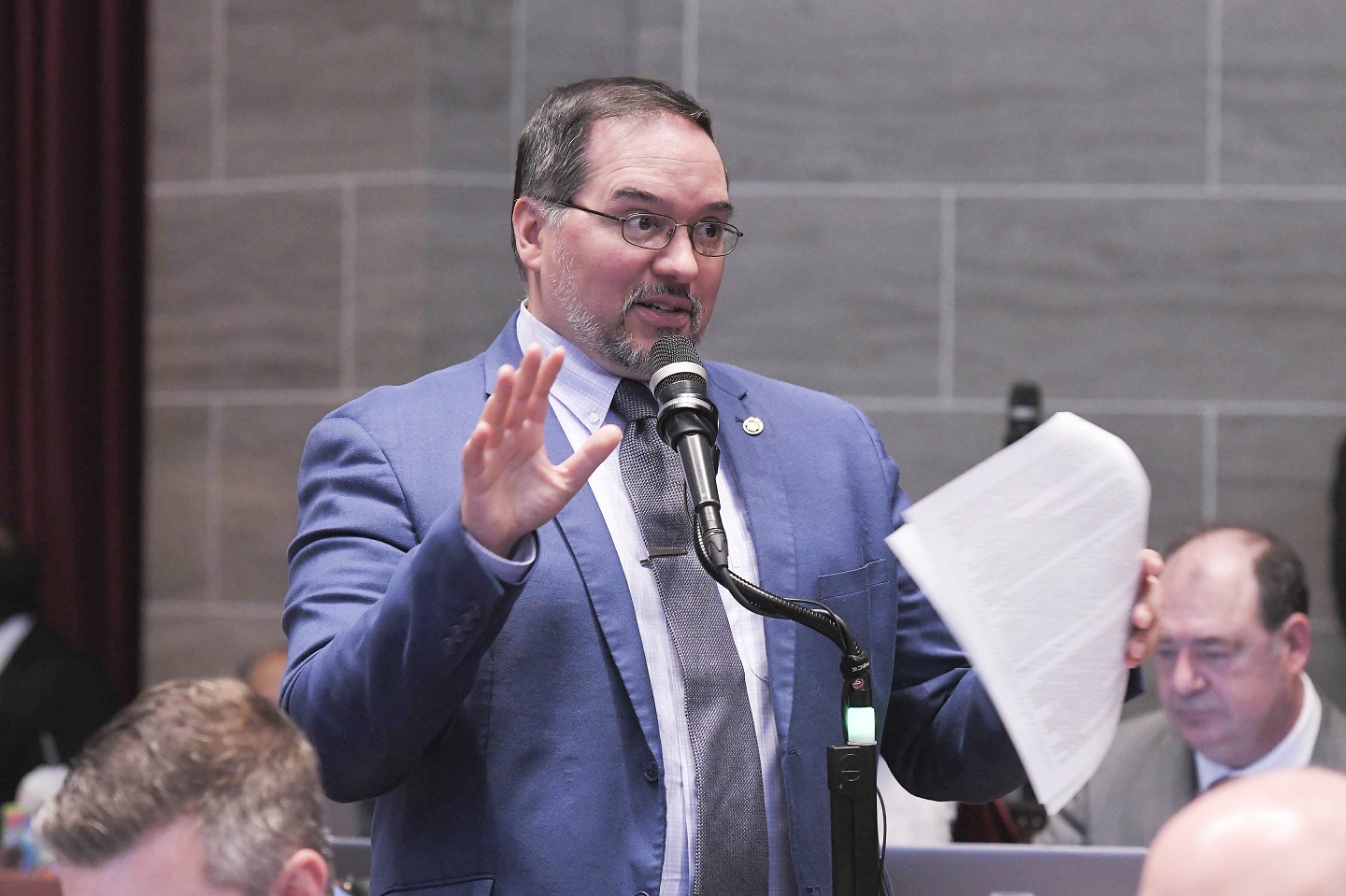Independence Representative Robert Sauls (D) offered this farewell before the end of his last regular session in the House:
Tag: Robert Sauls
Bipartisan Array of Bills from 13 House Members would Cut Taxes on Food, Diapers, or Feminine Hygiene Products
Many House lawmakers think Missourians need a break in the taxes they pay to the state. Thirteen House members, nearly evenly split across party lines, have proposed doing so by cutting taxes on necessary products, particularly diapers, feminine hygiene products, and food.
As the legislature enters the final few weeks of its session those bill sponsors are hoping their proposals will get some traction, perhaps as amendments to other proposals, or at least legislative hearings that could spur movement in future years.
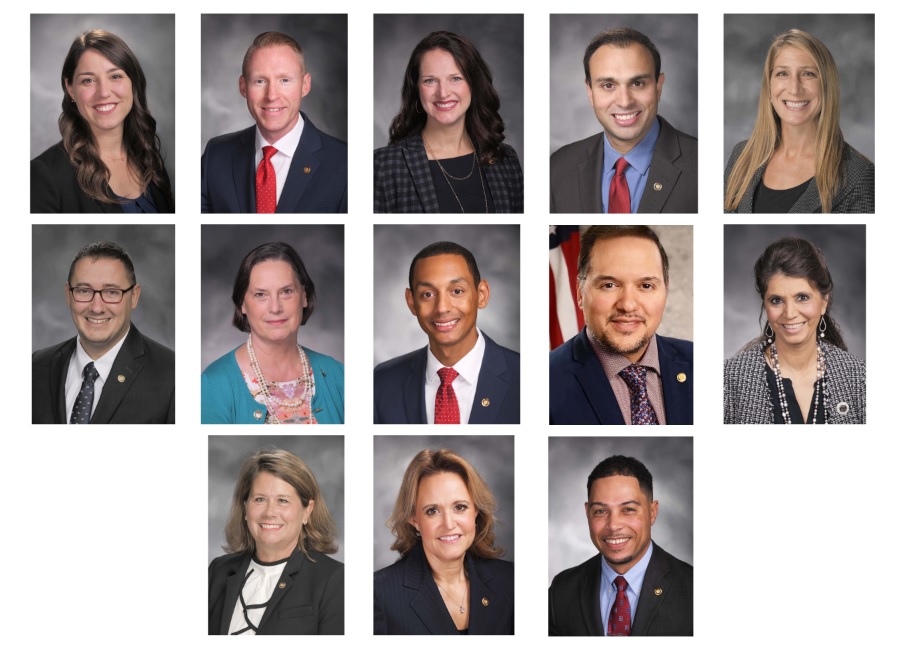
None of these proposals have been referred to committees.
Missouri is one of only 13 states in the nation that taxes food. Three neighboring states do not tax food, and Kansas will join that number next year. St. Charles Republican Adam Schnelting is one of the legislators proposing that Missouri do the same.
Schnelting said as inflation has skyrocketed in recent years, he has hoped that his idea would catch on amount his House colleagues.
“My own family, my daughter is 6 years old, my son is 18 months old, we have a growing family and we feel it in our own pocketbook. I know I’ve got a lot of constituents and a lot of people back home that feel it in their pocketbook. If people in my district have to live within their means then so does the government,” Schnelting said. “My wife and I were spending almost $1,000 a month on food … every little bit helps and adds up. If you’re talking several hundred dollars that can go toward over things, like diapers.”
Lone Jack Republican Chris Sander said in districts such as his, which is near the border with Kansas, Missourians are taking advantage of the lower rates some neighboring states offer.
Robert Sauls (D-Independence) proposes exempting food not only from the state sales tax of 1.225 percent, but also from local sales and use taxes, which in some parts of the state drive the rate up to more than eight percent.
Representative Chris Dinkins (R-Lesterville) said she and other legislators are seeing more and more of their constituents struggling, and they want to help.
“I think we’re always looking at ways to help the citizens of Missouri,” Dinkins said. “When you look at people’s income status, you find that your lowest income people spend the largest percentage of their income on food, so they are the ones that’s most impacted by the sales tax. They spend around 30 percent or more of their income on food, whereas your middle income people only spend a little over 10 percent, so we’re impacting the people that need it the most, and we’re trying to help those that need it the most.”
Missouri taxes diapers and feminine hygiene products at 4.225 percent. Several neighboring states tax those products at a greater rate, but three don’t tax feminine hygiene products at all and one does not tax diapers.
The 4.225 percent rate is often called a “luxury” tax, as it is applied to items that are deemed non-essential. That doesn’t sit well with many lawmakers, including Representative Mark Sharp (D-Kansas City, who proposes taxing such items at the lesser 1.225 percent.
“They should not be taxed at a luxury rate … so reducing them down to a food sales tax, I believe, is the very least that we can do,” said Sharp. “Many states have gone as far as just removing the tax altogether, so we have to something to at least move the needle.”
Others, like Republican Wendy Hausman (St. Peters) want to take the extra step of eliminating the state sales tax on those items, altogether.
Hausman, who is in her second year as a freshman legislator, said the idea was brought to her by fellow members of a businesswomen’s group, Little Black Book.
“We want to make sure that we’re supporting Missouri families by making it easier for them, especially in a day and age where they try to tax you and gouge you everywhere. We need to figure out ways to try to give people and families relief,” said Lake St. Louis Republican Representative Justin Hicks. “We all know that females need feminine hygiene products, that’s a given, and with people having kids out there we all know that diapers are usually a major expense to a family.”
Many legislators and advocates point out that difficulty affording or providing necessary products has a ripple effect, contributing to issues with both mental and physical health.
“From a parent’s perspective, not being able to provide an essential item for their baby [such as diapers] has a mental toll, so it impacts their mental aspect. Also [as] a workforce issue, on average, parents in diaper need miss 5.1 days of work a month because they can’t afford diapers to send to child care with their child, so this is a workforce issue,” said Representative Patty Lewis (D-Kansas City). “Then not to forget the physical health aspect that it has on a baby, sitting in saturated diapers hours after hours. From UTIs to diaper rash, sometimes if they’re not cured with over-the-counter medicine they have to go to the physician or the pediatrician, so additional time off work for the parents and additional cost for the parents as well, and then there can be long-term effects, from renal failure or renal insufficiency, for these babies.”
St. Louis Democrat Barbara Phifer points out, “Period products, especially, are very intimate and personal. If you think about young girls who are going through puberty, and if they don’t have access to those products, their school participation drops dramatically.”
Opposition to these ideas in past years has come from local governments, who say cutting taxes on these products jeopardizes services they provide, such as emergency responders.
“I think that kind of deterred it,” said St. Louis Democrat Jo Doll. “Hopefully this year we can finally get [the tax cut on diapers and feminine hygiene products] across the finish line. I think the biggest problem is that it always gets attached to something and whatever it’s attached to falls apart.”
House Democrat leader Crystal Quade’s (Springfield) plan to cut taxes on food would let Missourians vote on a number of tax changes, including a tax on private planes and yachts, and create a fund in the state’s coffers to help local governments transition.
“Missourians are suffering right now when it comes to making ends meet, and it’s our job to come up with solutions that help everyone,” Quade said. “It’s up to us to figure out ways to make up those losses and that shouldn’t be a burden on the regular taxpayer.”
Representative Maggie Nurrenbern (D-Kansas City), who is in her fourth year on the House Budget Committee, said the state can afford to reduce these taxes.
“We’re looking at record budgets and we have a record surplus still in the state treasury. What can we actually do to pass on cost savings to working families?” said Nurrenbern. “I hate to see a mom standing in the line making that decision, ‘Do I buy this pack of diapers or that gallon of milk,’ and those are the decisions our families are faced with every single day, and it’s time now, to pass that savings on to families and cut the state portion of sales tax on essential items.”
Chesterfield Republican Ben Keathley said the growth in support for these proposed sales tax cuts is a direct response to inflation hikes over the past several years.
While 13 legislators contributed to this article, Keathley said more will get on board the longer such ideas are not passed.
House passes ‘Valentine’s Law,’ increasing penalties for fleeing, resisting, or interfering with arrest
The Missouri House this week voted to increase the criminal penalties for resisting or interfering with an arrest, or fleeing from law enforcement. The bill is named in honor of a St. Louis County Police Detective who was killed by a fleeing suspect, in 2021.
That was the opening statement from Representative Justin Sparks (R-Wildwood), the sponsor of House Bill 1692. Sparks was with the St. Louis County Police Department for nearly 15 years. He knew Detective Tony Valentine personally, and was on the scene when he died.
Sparks was certainly not the only House member to speak in favor of the legislation with passion borne of personal experience. Representative Lane Roberts (R-Joplin), whose career in law enforcement spans decades, including as Joplin Police Chief and the state’s Director of Public Safety, said he knows what it’s like to lose friends and to lose those under his command.
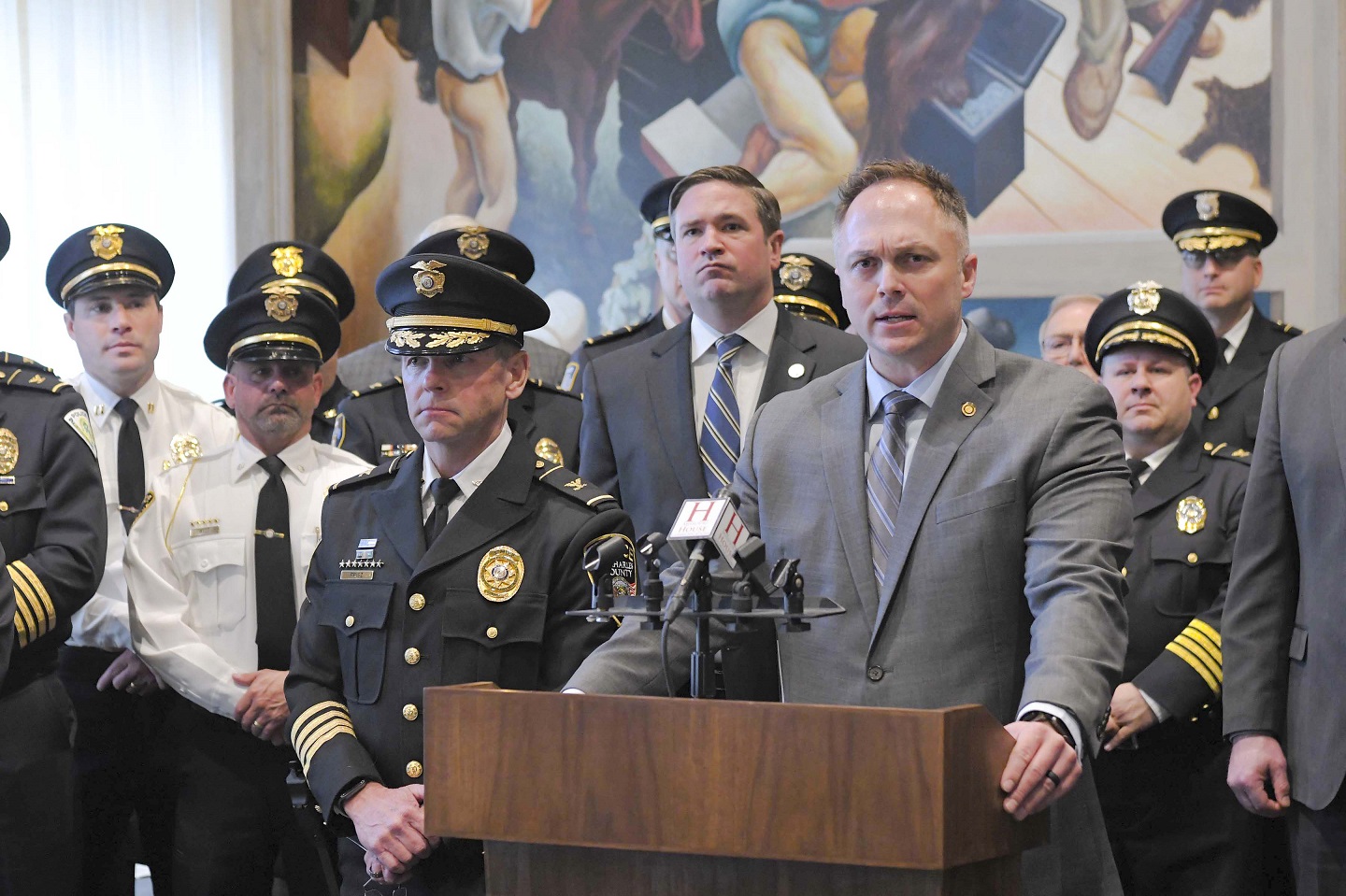
In a display of the bill’s bipartisan support, Representative Robert Sauls (D-Kansas City), agreed. His career includes time as both a Jackson County prosecutor, and as a public defender.
“There are a couple of offenses that I think, maybe, the penalty might be too harsh, and there are some where I think it is too light, and this is one that I think is, in particular, too light, because of what the ultimate harm may potentially be,” Sauls said. “This offense has the potential to kill and harm people and I just think … it’s one of the few that I think is too soft.”
“This applies to the violent felons who know exactly what they’re doing and who accelerate at extreme speeds into oncoming traffic, putting everybody at risk,” Sparks explained.
A person would violate Valentine’s Law if they reasonably know law enforcement is trying to stop them and they flee at a speed 10 miles per hour or more greater than the posted speed limit, and if, in doing so, they pose a risk of physical harm or death to any person.
The offense would be a class D felony with a one-year minimum prison sentence. It would increase to a class B felony if, by fleeing, they cause serious physical injury to another person. It would become a class A felony if by fleeing they cause another person’s death.
The bill also adjusts the circumstances for when resisting or interfering with arrest is a class A misdemeanor and when it is a class E felony. If such an act is committed with the use of a deadly weapon or dangerous instrument, or involves taking someone hostage, it would be a class A felony.
The House voted 107-25 on Wednesday to send HBs 1692 & 1748 to the Senate, where versions of Valentine’s Law have been advanced out of a committee and a bill that includes it has been passed and sent to the House.
House answers Jackson Countians’ call to elect their assessor
Jackson County residents are angry and frustrated by skyrocketing property tax bills, and the Missouri House has responded, voting toward a restoration of accountability to the office of the county’s assessor.
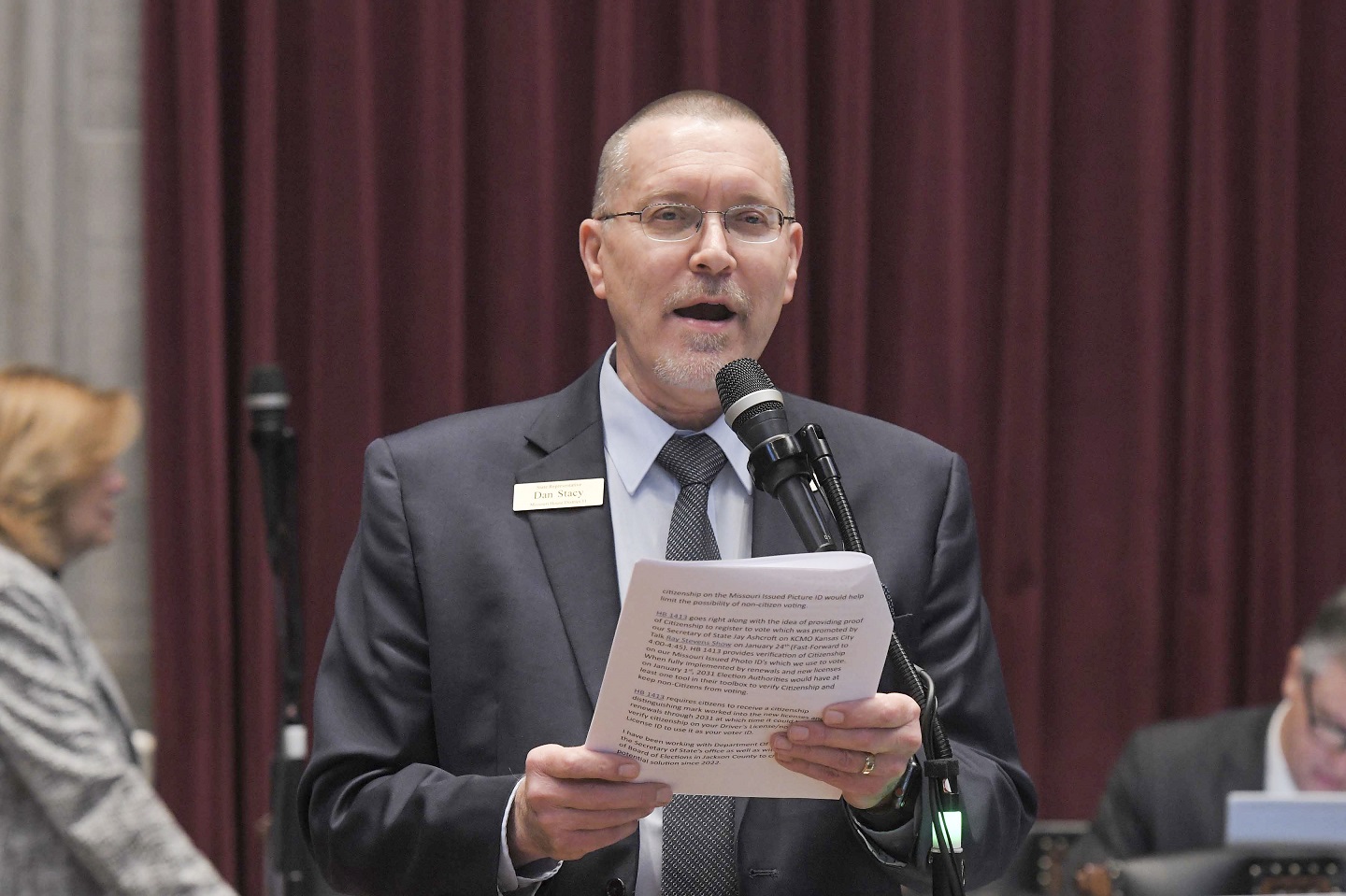
Jackson County, since a voter-approved measure was passed more than a decade ago, is the only charter county in the state whose assessor is appointed rather than elected. The County’s assessments have been the subject of criticism and anger for months, as property values have increased by about 40-percent since the last assessments were done in 2021. The situation has earned criticism from the state auditor and is the subject of a lawsuit filed by the attorney general.
The House last week approved putting to voters a measure to reverse their earlier decision. HJRs 68 & 79 propose an amendment to Missouri’s Constitution to restore the requirement that Jackson County’s assessor be elected.
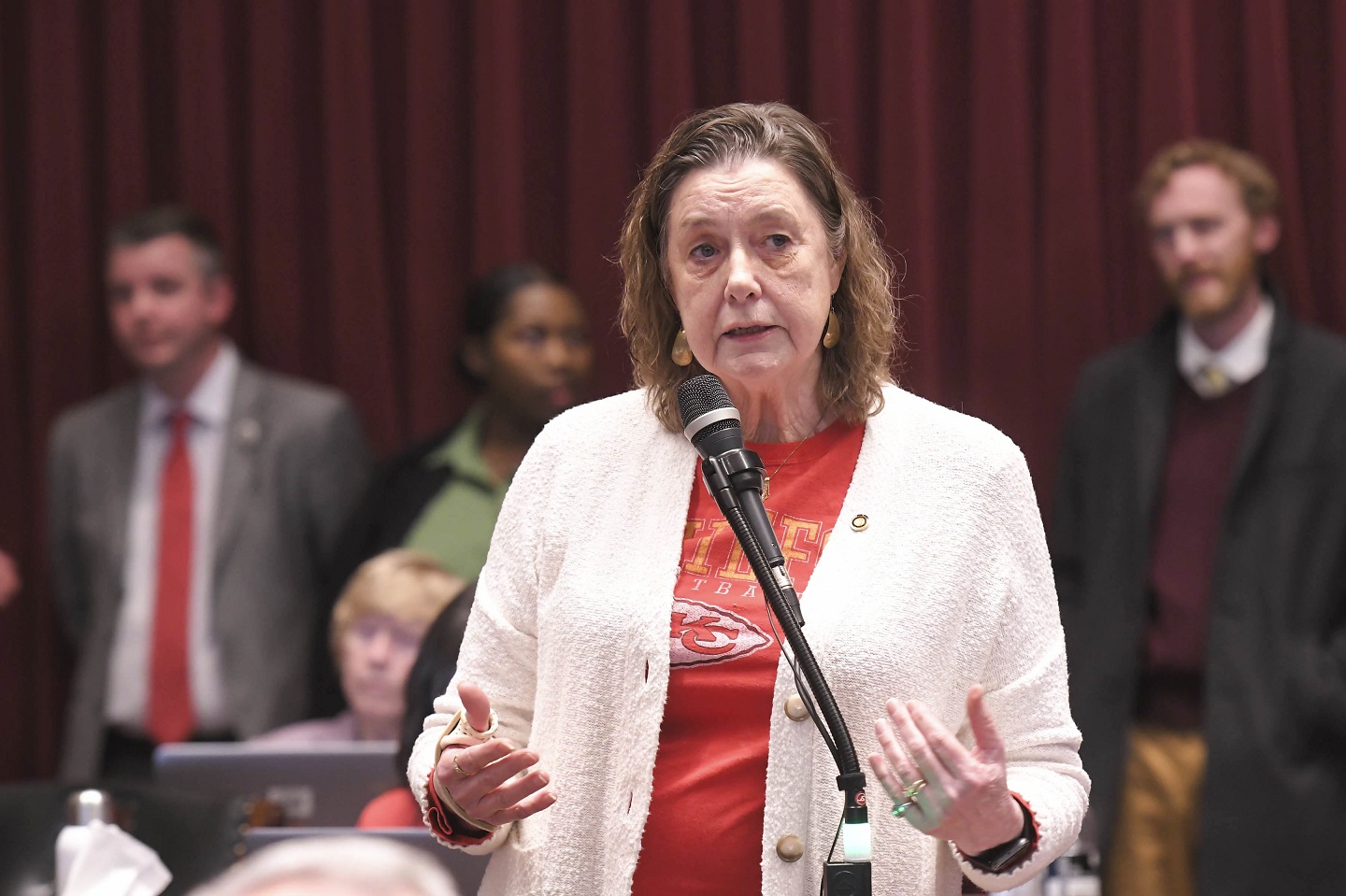
It is proposed by Blue Springs Republican Dan Stacy.
“In 2023 Jackson County had over 50,000 appeals of real estate assessment value. Actually, 54,539 appeals. That’s almost one out of every five parcels filed an appeal in Jackson County,” Stacy told his colleagues.
Representative Robert Sauls (D-Independence), who like Stacy, represents a portion of Jackson County, said idealistically he would prefer not to have the entire state voting on an issue specific to Jackson County, but he supported these Resolutions.
“We have got a situation where property tax has become extremely high and people are asking for help,” said Sauls.
Another Jackson County representative, Ingrid Burnett (D-Kansas City), was among the few who voted against the measures.
“Our Jackson County Assessor, current assessor, was handed a mess. It was a mess, the way that the county personal property taxes were being assessed,” said Burnett. “For this body to decide that the rest of the state should decide how Jackson County manages their personal property taxes is just bad policy.”
In response, Stacy reminded his colleagues, “Just keep in mind that 97-percent of Jackson County residents, when polled, said they want an elected assessor. I ask my fellow legislators to support House Joint Resolutions 68 and 79 to give the citizens of Jackson County the same privilege that every other charter county and all smaller counties have in Missouri: an elected tax assessor.”
The House voted 116-10 to advance the measure. It now goes to the Senate. If approved there, it would go to voters on a statewide ballot.
House plan to create mental health courts advancing
A House committee has advanced a plan to create treatment courts in Missouri that would focus on mental health issues, and offer offenders treatment options as an alternative to incarceration. Its bipartisan supporters say it would be a meaningful expansion of the state’s successful treatment courts.
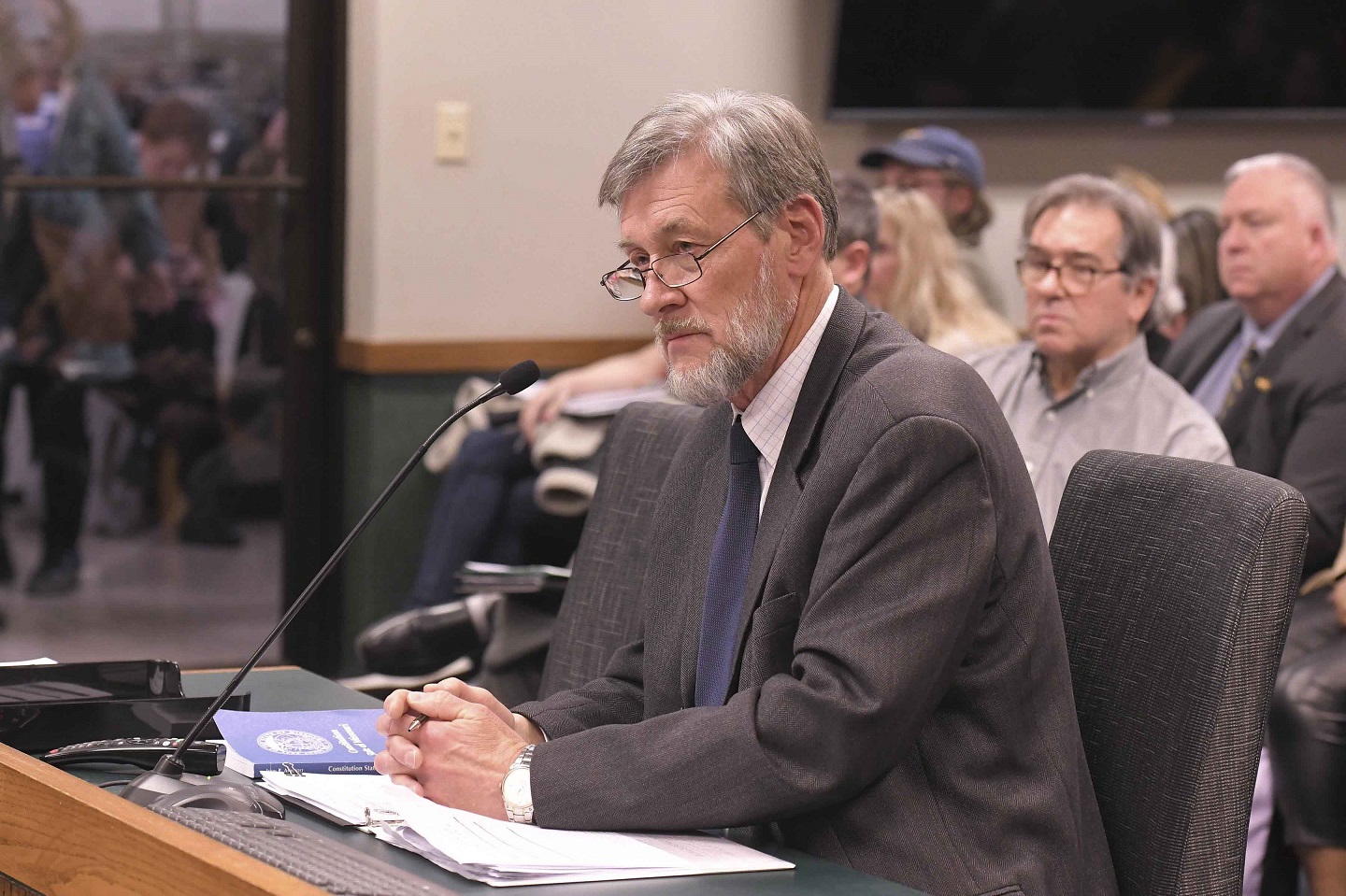
The mental health courts that would be created by House Bill 2064 would be similar to the already existing veteran courts, DWI courts, drug courts, and family treatment courts. In each of those, a defendant must go through a regimen of relevant treatment programs. Those who succeed, or graduate, can avoid prison time or having a crime appear on their record.
“The goal is that they receive treatment to help them overcome, have the tools that they are now aware of, that they’ve experienced, which they have available to them to maintain a lifestyle without the problems that haunted them,” said Representative John Black (R-Marshfield), the bill’s sponsor.
He said this would be a continuation of the existing treatment courts, which are widely viewed as an achievement by Missouri’s legal system and a cost-effective way to avoid incarceration. They allow offenders a chance to remain connected to and active in their communities while working and remaining with families. They are also associated with reductions in crime and the need for foster care, and with ensuring timely payment of child support.
Black noted that perhaps most importantly, “The percentages of those folks who are able to avoid recidivism … with those folks who have actually completed the treatment courts, are very impressive.”
The proposal is one recommendation to come from the Substance Abuse Treatment and Prevention Task Force, created under legislation passed in 2019 and chaired by Black. That task force sought to get a handle on what is happening throughout the state of Missouri and across all agencies, to deal with substance abuse issues.
One of its recommendations was to see that existing treatment courts receive more funding, as well as the creation of mental health treatment courts.
Black said among the existing treatment courts there is already a lot of overlap with mental health.
Black said such courts would likely rely heavily on counseling that is specific to a given defendant’s circumstances, “and it is a tough program. It’s not something that’s easy. They have to invest a lot of effort in completing the program, so if there was a co-occurring problem – substance abuse would be the most likely – then the persons in that program would be referred not only to mental health professionals but also those folks that could help them with their substance abuse problem.”
The bill has been unanimously endorsed by the House Judiciary Committee, where it was praised by members of both parties. Ranking Democrat Representative Robert Sauls (Independence) said this is a subject that needs more attention.
For any who question the effectiveness of the treatment courts Missouri already has, or the desire to expand on them, Black said one need only be present at a graduation. He called them, “inspiring, humbling, you see people who are there fully acknowledging that the program has turned their life around for themselves and their families. They show great gratitude to the elements of the treatment courts, including the prosecutor’s office, they usually organize the effort … it’s one of the things Missouri is doing well.”
Tougher penalties proposed for those who roam neighborhoods checking car doors
One state lawmaker says too many Missourians don’t feel safe in their own neighborhoods, and he believes tougher laws are the answer. A House panel has endorsed his proposal.
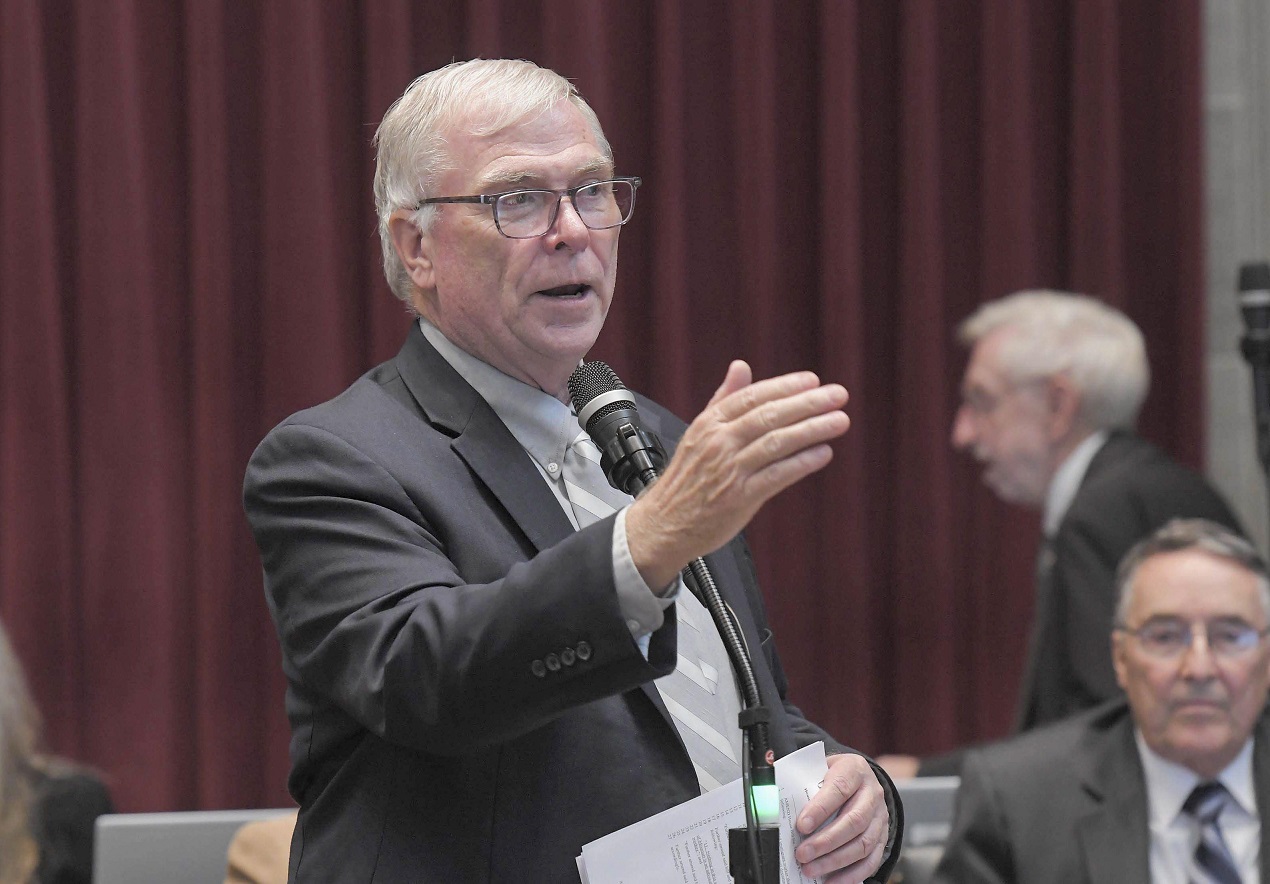
Representative Jim Murphy (R-St. Louis) says groups of individuals are routinely going through neighborhoods in his south St. Louis County district seeking opportunities to steal from homes and cars. This typically involves pulling door handles on multiple cars, looking for those that are unlocked.
“This is happening every night in St. Louis County, every single night. If you have a Ring doorbell you get these neighborhood alerts. Every single day I get, oh they’re checking doors in this neighborhood, they’re checking doors in that neighborhood. It’s just something now that is neighborhood terrorism,” Murphy told the House Committee on Crime Prevention and Public Safety.
Murphy told his colleagues that the people committing these acts feel no fear of punishment. He said the way Missouri statutes are written doesn’t cover these acts, or they fall under crimes which carry too little punishment. In incidents involving juveniles, the penalties are so lenient that when law enforcement does catch them in these acts, they are often simply let go.
He is sponsoring House Bill 1510, which would create the crime of “unlawfully gaining entry into a motor vehicle,” defined by the act of lifting the handles of, or otherwise attempting to open, the doors of successive vehicles in an attempt to gain entry. It would be a class E felony, punishable by up to four years in jail and a fine of up to $10,000.
It would also extend the crime of second-degree burglary to include unlawfully entering a vehicle, or any part of a vehicle, with the intent to commit a felony or theft. A person could commit such an offense with any part of the body, or with an object connected with the body. Burglary is a class D felony, which carries up to seven years in prison. If a person violating this provision has or steals a firearm, it would be a class C felony, punishable by three to ten years in prison.
“I voted for it in the past, I intend to vote for it now,” Representative Robert Sauls (D-Independence) told Murphy, but he questioned the design of the legislation. He and others on the committee asked whether these acts could fall under existing crimes without creating a new offense.
Murphy said it’s time to be more pointed.
“Doesn’t it send a message? If there’s a law out there that says you can’t tamper with, pull a door handle … now the word’s out,” Murphy said. “I think you really need it to be specific to make it known that this is the crime.”
At least one committee member, Representative Holly Jones (R-Eureka), said she is in full support.
The committee has voted to advance that bill. It will next be considered by another committee, and from there could be sent to the full House for consideration.
911 Dispatchers get ‘First Responder’ status, more mental health help options
Missouri 911 dispatchers will now be considered “first responders” in state statute under legislation that becomes effective next month. That will bring a lot of changes, including increased access to mental health resources.
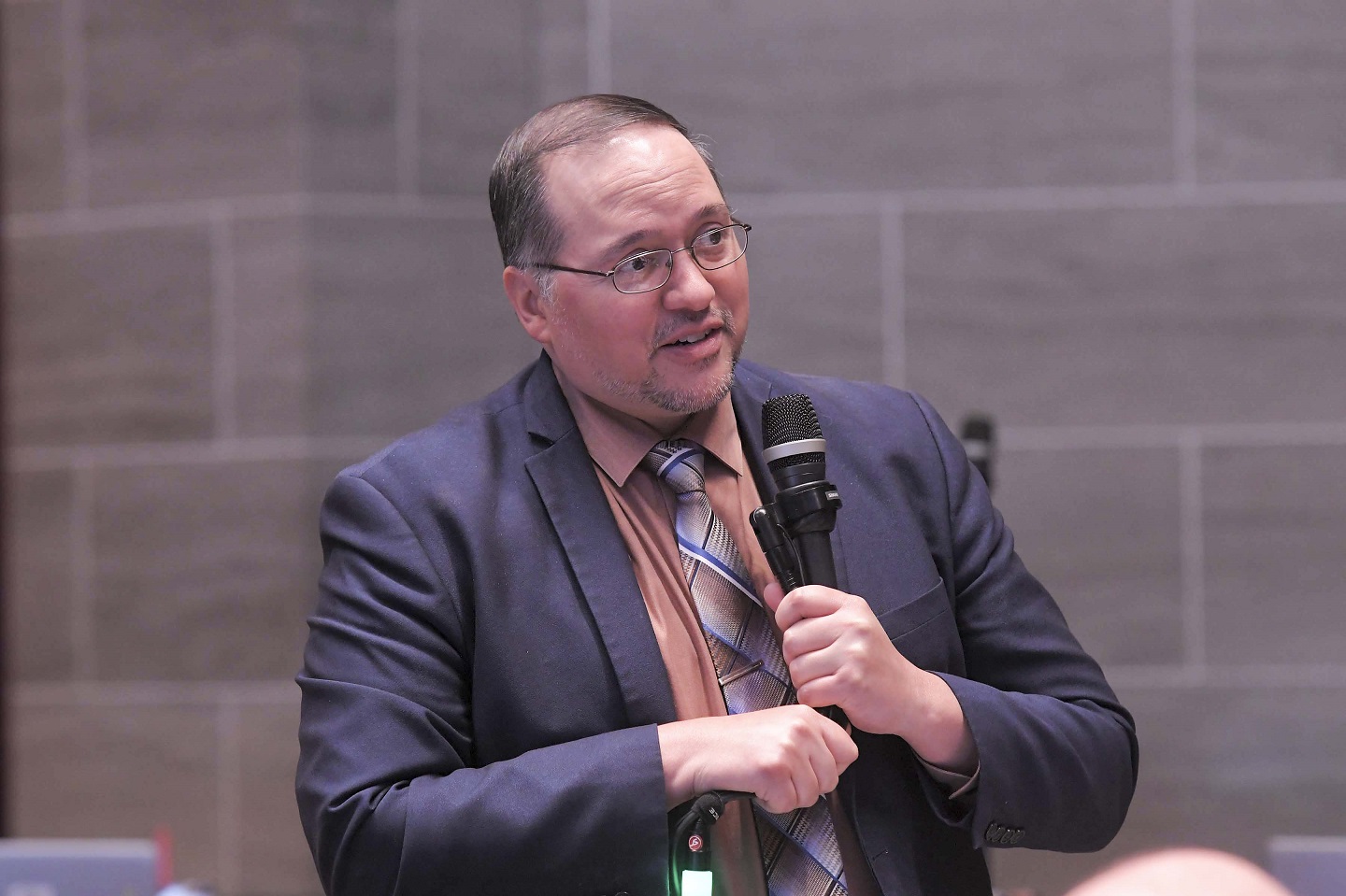
Language in two bills signed into law by Governor Mike Parson (R) will add emergency telecommunicators to the definition of “first responders,” which previously included people like firefighters, police, and emergency medical personnel. The change in designation will mean, among other things, that dispatchers will have access to the same mental health supports as those in those other jobs.
Sarah Newell, Polk County 911 Director, says that’s something from which she and others in her field can definitely benefit.
“I hear it every day. I hear it happen. I hear overdoses, I hear suicides, I hear fatality accidents in children. It happens all the time,” Newell told House Communications.
She said a dispatcher’s emotions can be constantly in transition. “We don’t stay consistent. We drop to a one, and then we’re at a nine, and then okay we’re back to a two, and here we are, ten, ten, ten, and so it’s hard for your body to adjust to those heightened adrenaline changes so often throughout the day.”
“Sometimes it’s minute-by-minute,” said Jamie Taylor, President of the Missouri Chapter of the National Emergency Numbers Association (MO NENA). “[A dispatcher] could be on a really serious call with somebody that’s wanting to harm themselves and they’re having to try to talk them down, talk them through it … they could get right off of that call and deliver a baby on the next call.”
Taylor said the proposed re-designation has been considered for years while legislators and state agencies worked to consider what changings it would bring, and how to best implement it, but he said legislators always seemed to favor the change.
Representative Robert Sauls (D-Independence) has proposed such language for several years. In his time as a Jackson County Prosecutor and later as a public defender he listened to a lot of 911 calls.
“Having seen many of the videos and listened to many of these 911 calls, I know they’re stressful, and this is something that should have always been the case. Opening that door for mental health is so important,” said Sauls. “These people are the absolute first point of contact in most instances involving a crime and what could potentially be someone’s worst day of their life. The stress that they undergo, the amount of pressure that’s placed on them at that time, these people absolutely should be treated as first responders.”
Joplin Representative Lane Roberts (R) worked in public service for more than 40 years, including as Joplin’s Police Chief and the state’s Director of Public Safety. He said he even did some dispatching early in his career.
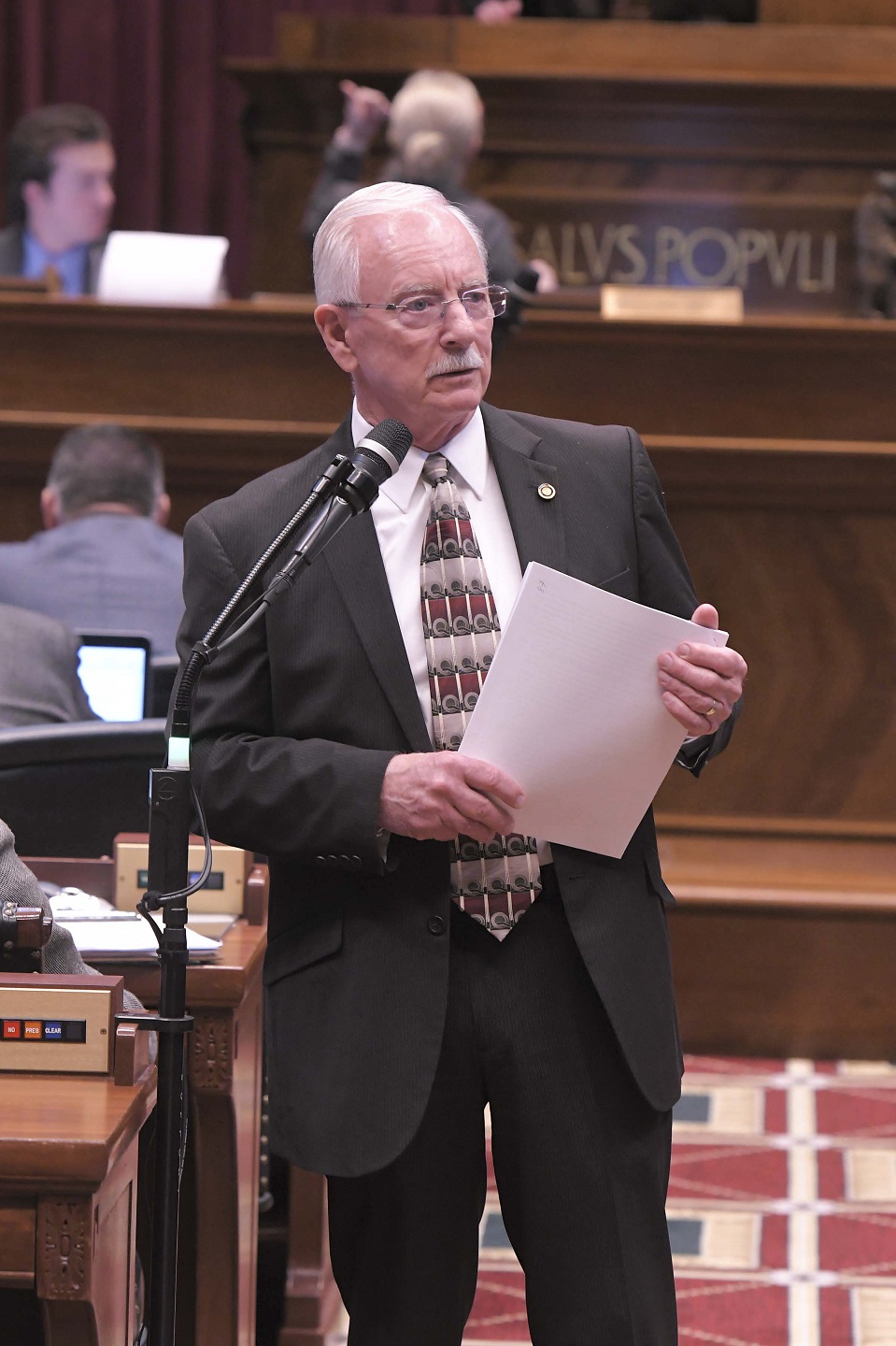
“Those people, in my mind at least, are the most underappreciated element of public safety there is,” said Roberts. “Everybody sort of takes them for granted. They’re in this windowless environment. Nobody sees them, they don’t get to see anybody, they deal with all the emotion, they deal with all the psychological trauma, but they don’t get to do anything except move on to the next calls. But, when you’re the guy in the field and you get yourself in trouble, that dispatcher’s your lifeline and suddenly they become the single most important person on the planet. There is just no way to express your appreciation for a good dispatcher.”
Taylor said like anyone who has done the job, he has experienced calls that he’ll never forget – the kinds of calls that take a toll.
He hopes this change will help to slow what has been a notably high turnover rate in his field.
He added that as much as anything, though, it will feel good for dispatchers simply to have this acknowledgement.
The change could also create access to grant dollars that could see local agencies expand the latest forms of 911 access in areas of Missouri that don’t have it. Newell and Taylor expressed their thanks to the legislators who worked for so many years on this issue.
That change in designation will take effect August 28.
Dispatchers ask for help dealing with PTSD, seek ‘first responder’ designation
The state’s 911 dispatchers are urging lawmakers to add them to the state’s legal definition of “first responders,” before the legislative session ends. Some of them visited the Capitol to share personal stories illustrating why they need the help in dealing with post-traumatic stress that comes with that designation.

First responders – which state statute currently defines as firefighters, law enforcement personnel, and emergency medical personnel – are afforded mental health resources, and several legislators say those should also be available to dispatchers.
Representative Lane Roberts (R-Joplin) has been Joplin’s Police Chief and the state’s Director of Public Safety, among other things in his career of more than 40 years. Throughout all of that time he worked with dispatchers and even worked as one at times.
“We have always underappreciated these folks. They’re kind of out of sight, out of mind. They work in a windowless environment, but they are the first of the first responders. They’re the gateway to public safety,” said Roberts. “Every time they get an emergency call they get an adrenaline dump just like people who work in the field do. The difference is, the people in the field get to go somewhere, take action, use those chemicals, while the dispatcher will simply move on to the next call, take those chemicals home at night and go to sleep with them and suffer the health consequences.”
Independence representative Robert Sauls (D) was a prosecutor in Jackson County and a public defender.
“As a former prosecutor I would regularly listen to 911 calls and what happens in those circumstances and … often times people are contacting 911 operators on their worst day. Something’s happening, they’re scared, it’s a very stressful situation, and all of these 911 operators are under these stressful environments and the thing of it is, you’ve got to go on to the next one. You’ve gotten your one situation settled, you hang up the phone, and you’ve got another one. I think it’s very important to recognize these people as first responders.”
Polk County 911 Director Sarah Newell said what she and her colleagues do is often dismissed as just answering phones or clerical work.
J.R. Webb, the Assistant Director of Springfield/Green County 911, said dispatchers, “have to be able to do a lot of things at once. They have to be able to take that phone call, at the same time they’re typing that information into a computer, at the same time that they may be dealing with first responders on the radio. The multitasking is incredible in a busy situation, and it takes a special kind of person to be able to do that. It takes a kind of type ‘A,’ take charge personality to succeed at our job and it’s not meant for everybody.”
The Chair of the State 911 Board of Governance, Alan Wells, said “Post-traumatic stress is a big, big thing for our 911 telecommunicators, and as of right now they do not have a lot of resources there to help with that.”

He said it’s not uncommon for dispatchers, especially in the smaller communities throughout Missouri, to know personally the people involved in the incidents they are handling.
“Sometimes it can be very horrifying for those operators,” said Wells. “It may be a loved one, a family member, an immediate family member, or in our case it was one of our own 911 call takers who had just left his shift, headed home on his motorcycle and hit a deer and it was a fatality. The same operators that were just working with him had to take that call and work that incident.”
Hailey Brunner is in her fourth year as a dispatcher at the Cass Co Sheriff’s Office. She remembered one week in which her rotation, “worked seven fatalities, whether it be between an accident, people harming themselves, anything of that nature, natural deaths, anything, and it’s just a wide variety, whether it’s young kids to old kids. My most recent one was a two year-old who died in a fatality car accident.”
Blake Johnson has been dispatching for five years in Green County. He said there is one call he’ll always remember.
Brunner said dispatchers can’t help but imagine the scenes that they are hearing play out over the phone, and that can result in very vivid and very upsetting imagery.
Webb said worse still, dispatchers often get no closure at the end of a call.

He said an increasing number of suicides in Missouri also directly impacts dispatchers.
Some call centers, like that at Springfield, have mental health resources that are made available to dispatchers there and in surrounding communities. Such resources aren’t available to all dispatchers in Missouri, though, especially in many smaller communities.
Several bills would address PTSD and mental health resources for dispatchers and other first responders. These dispatchers and lawmakers are among those who hope at least one of those bills is passed before the session’s end on May 12.
House votes to increase state efforts against veteran suicide
The House has voted to improve the state’s efforts to prevent suicide among its veteran population.

Representatives voted 156-0 for House Bill 132, which directs the Missouri Veterans Commission to work with the Department of Mental Health to come up with recommendations on how Missouri can prevent veteran suicide. It would require the Commission to report annually, beginning June 30, 2024, on new recommendations and on the implementation and effectiveness of the state’s efforts.
The bill is sponsored by Jefferson City Republican Dave Griffith, a U.S. Army Veteran who served with the 8th Special Forces Group as a Green Beret. He has spent much of his career in the House dealing with veterans’ issues, and with ways to stem suicide not only among current and former service members but in the population in general.
Griffith speaks often of the social media campaign #22, and his personal goal of decreasing or eliminating what that number represents.

Though he and others in the legislature and state government have been talking about these issues for years and developing related programs, Griffith said Missouri has a long way to go. Representative Ashley Bland Manlove (D-Kansas City), who has served in the Missouri National Guard, agreed.
“I think the biggest population that we should be talking about is the one percent of American population that raises their right hand for this country,” continued Bland Manlove. “The best way that we can thank our veterans for their dedication and work to this country is by taking care of them.”
Rogersville Republican Darin Chappell (R) has a great deal of experience with the issues faced by military members and their families, as he is a veteran of the Navy and the Army Reserves and has many service members in his family.
Before casting their votes for the measure, legislators reflected about their own personal experiences. St. Clair Republican Brad Banderman solemnly told his colleagues, “About two years ago my little sister laid down on the grave of my older brother that shot himself in 1990 and killed herself. Anything that we can do as a legislature, as a body, as individuals, to help prevent the suicide of our veterans, I’m in full support of.”

Missouri as of 2020 had the 14th highest suicide rate in the U.S., with about 1,125 people having died by suicide in that year. The rate among veterans is approximately 1.5 higher than in the rest of the population, and experts are telling legislators they fear that suicide rates are going to increase.
“I think we need to do better and I think this is a good start,” said Representative Robert Sauls (D-Independence).
The same bill passed out of the House last year but did not come to a final vote in the Senate.
Anyone in need of help for themselves or someone else for a mental health, substance abuse, or suicide crisis is encouraged to call 988.
House bill would increase penalties for ‘swatting’
The House has voted to increase the penalties for deliberately reporting someone to law enforcement with the intent or hurting, embarrassing, or intimidating them; a practice commonly referred to as “swatting.”

Under House Bill 1704 a person would be guilty of making a false report if they intentionally make, or causes to be made to any enforcement organization, a false report that could cause bodily harm as a result of the emergency response.
“The bill hinges on the statement that it is with reckless disregard of causing bodily harm to any person as a direct result of an emergency response,” said bill sponsor Lane Roberts (R-Joplin). “It’s an effort to keep people from weaponizing the public safety system to harm other people; sometimes physically, sometimes by reputation or intimidation.”
“This also deals with the use of the system to humiliate, embarrass, or have people forcibly removed from premises, and this is often aimed at minorities, aimed at religious differences, sexual orientation … recent news has been replete with that kind of conduct,” said Roberts. “This bill prohibits that kind of use of public safety to harm others, to harm their reputation, to harm them physically, or otherwise damage an individual.”
Those who make false reports that result in a person being killed or seriously hurt could be charged with a class-B felony, punishable by 5 to 15 years in prison. Otherwise, false reports of a felony crime would be a class-C felony (up to 7 years in prison) and false reports of a misdemeanor would be a class-B misdemeanor (up to six months in jail and a fine of up to $1,000).
Roberts and other legislators have discussed in recent years how incidents of “swatting” seem to have increased, and in some cases those have resulted in deaths and serious injuries. Roberts’ legislation is the latest attempt to address that.
His proposal was sent to the Senate with unanimous bipartisan support, 142-0. Democrats contributed to the language of HB 1704, and Representative Ashley Bland Manlove (D-Kansas City) spoke in support of it. She said she remembers a recent “swatting” incident that happened just across the state line from her district, in Kansas.
“Somebody he was on [a] video game with in California was apparently mad that they had lost the game and used an app to deploy SWAT to the man in Overland Park’s house saying, ‘He’s got somebody in the house and they’ve got hostages,’ so SWAT comes in hot immediately. Unfortunately the young man was a black man,” said Bland Manlove. “I’ve also heard of this being used, as [Representative Roberts] said, in domestic disputes. Somebody’s mad that they don’t have the kids or they have to pay child support so then they constantly use the police, filing false reports against the other partner.”
The bill was also the product of bipartisan cooperation, with the inclusion of changes authored by Representative Robert Sauls (D-Kansas City).
In addition to possible incarceration and fines, violations of the language of HB 1704 could result in civil penalties.
HB 1704 was sent to the Senate with two full weeks remaining in the legislative session.

